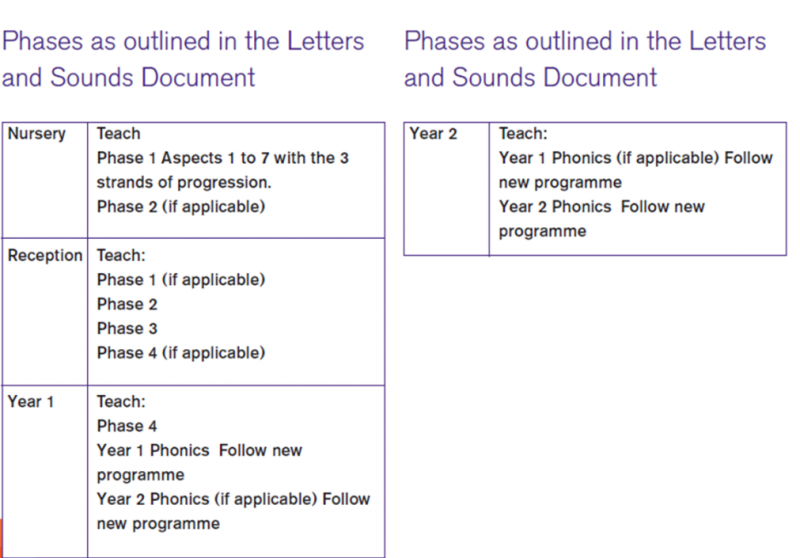Phonics
As part of the English lesson, children are taught the principles and practice of phonics following the guidance of Letters and Sounds, Primary National Strategy. We also follow the unit plans devised by the Local Authority. The teaching of phonics is key to children developing their early reading and writing.
From Nursery children are taught phonics throughout the day through play. Children follow Phase 1 in Nursery which covers seven aspects:
- Aspect 1: General sound discrimination – environmental sounds
- Aspect 2: General sound discrimination – instrumental sounds
- Aspect 3: General sound discrimination – body percussion
- Aspect 4: Rhythm and rhyme
- Aspect 5: Alliteration
- Aspect 6: Voice sounds
- Aspect 7: Oral blending and segmenting
Aspect 7 prepares the children for Phase 2 which is covered in Reception and where children begin to read and write using their phonic knowledge. Some children in Nursery who have been identified will partake in a phonics session covering Phase 2 to ensure they are challenged. When the children begin in reception they will be assessed and if the children they will begin Phase 2. This is delivered by the teacher.
Intervention groups will also take place to ensure that any children who require Phase 1 still have access to it. Children follow Phase 2 and Phase 3 in Reception. It is our aim to ensure children are secure in Phase 3 before going to Year 1. Some children will be ready for Phase 4 in Reception and children are targeted and taught at this level.
The unit plans from the LA are used for Year 1 and Year 2 and ensure coverage of the national curriculum. All children are assessed each year from Nursery until completion of the phases to ensure children are grouped accordingly. Phonics sessions begin in nursery and follow through to Year 3 with additional sessions from Year 4 onwards for targeted children.

